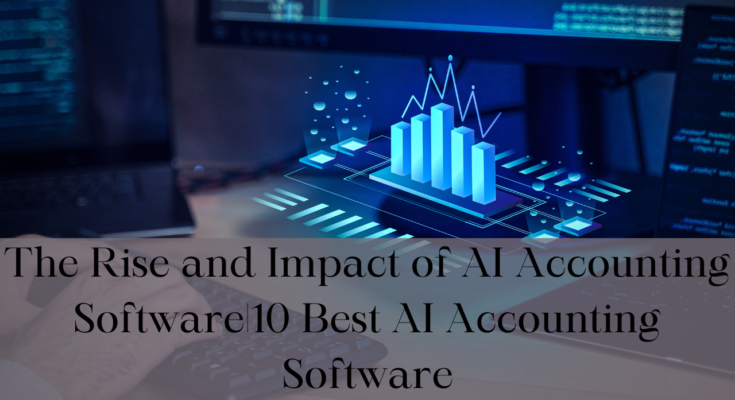The Rise and Impact of AI Accounting Software|10 Best AI Accounting Software
The days of tedious reconciliations and never-ending data entering are long gone. Artificial intelligence (AI) is driving the accounting industry of the future. Accounting software using artificial intelligence (AI) is transforming the financial industry by increasing productivity, simplifying processes, and providing access to analytical data for companies of all kinds.
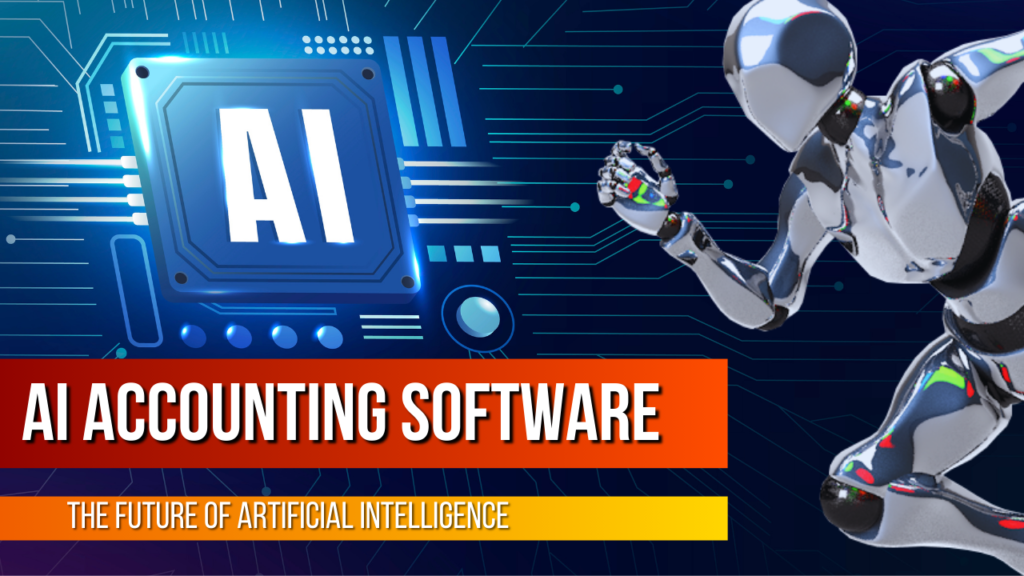
What is AI Accounting Software?
Software for accounting with artificial intelligence (AI) is a state-of-the-art technological development for money management. This cutting-edge software helps companies automate a wide range of accounting activities and revolutionize their financial operations by leveraging the powers of machine learning algorithms and natural language processing (NLP). Now let’s explore the nuances of AI accounting software:
- Automated Receipt and Invoice Processing: Take into account a system that can categorize and read invoices and receipts on its own. AI accounting software automates the detection and categorization of financial records, saving human data entry time and error. Doing this greatly lowers the possibility of human error while also saving a ton of time.
- Effortless Bank Statement Reconciliation: The process of reconciling bank statements is incredibly easy for AI accounting systems. These systems match financial transactions fast and accurately using complex algorithms, ensuring that the data recorded matches the bank’s real operations. The result is a more accurate reconciliation process that eliminates tedious human work and is more efficient.
- Accurate Financial Reporting and Forecasting: One of AI accounting software’s most noteworthy features is its ability to provide precise and insightful financial reports and estimates. These systems use historical data and patterns to deliver companies accurate predictions of future financial trends. This ability to forecast the future allows organizations to plan ahead, make educated decisions, and allocate resources appropriately.
- Fraud Detection and Error Identification: AI accounting software serves as a vigilant defense against errors and fraud. Using sophisticated algorithms, the program analyzes financial transactions to look for trends and abnormalities that can indicate fraud. In addition, it may spot errors in calculations or data entry, protecting data integrity and averting anomalies in finances.
- Real-time Financial Insights: It is impossible to overestimate the significance of real-time information in a dynamic corporate environment. AI accounting software continuously processes and analyzes data to deliver rapid financial insights. With this capability, organizations can remain flexible, reacting quickly to changes and making decisions that are well-informed and grounded in the most recent financial data.
10 Best AI Accounting Software of 2023
| Software Name | Key Features | Target Users | Pricing |
|---|---|---|---|
| Vic.ai | AI-powered invoice management, 97-99% accuracy, open API for integrations | Businesses of all sizes | Not specified |
| Indy | Free AI-based accounting for freelancers and small businesses, syncs with bank accounts | Freelancers, businesses, entrepreneurs | Free |
| Docyt | AI-powered automation for faster decision making, 24-7 reconciliation, real-time insights | Businesses of all sizes | Not specified |
| Booke AI | AI-powered bookkeeping automation, auto-categorization, reconciliation, OCR, integrates with Xero, QuickBooks | Accountants | Not specified |
| Truewind | AI and concierge service for startup financials, reliable bookkeeping, financial modeling, investor management | Startups | Not specified |
| Gridlex Sky | AI-powered automation for invoicing, credit control, reconciliation, budgeting, forecasting | Businesses of all sizes | Not specified |
| ZENI.AI | AI-powered accounting for small and medium-sized businesses, automates bookkeeping and expense tracking | Small and medium-sized businesses | Not specified |
| Blue Dot | AI-powered tax compliance and vulnerability detection, leverages external and historical data | Businesses of all sizes | Not specified |
| Bill & Divvy | Cloud-based AR/AP automation, credit and expense management | Businesses and accounting firms | Not specified |
| Sage Intacct | Cloud-based financial management with AI automation and real-time insights | Businesses of all sizes | Not specified |
Benefits of AI Accounting Software:
There are several advantages to using AI accounting software, including how it changes the way financial procedures are conducted and helps firms run more smoothly. The following is a thorough analysis of the benefits of implementing AI accounting software:
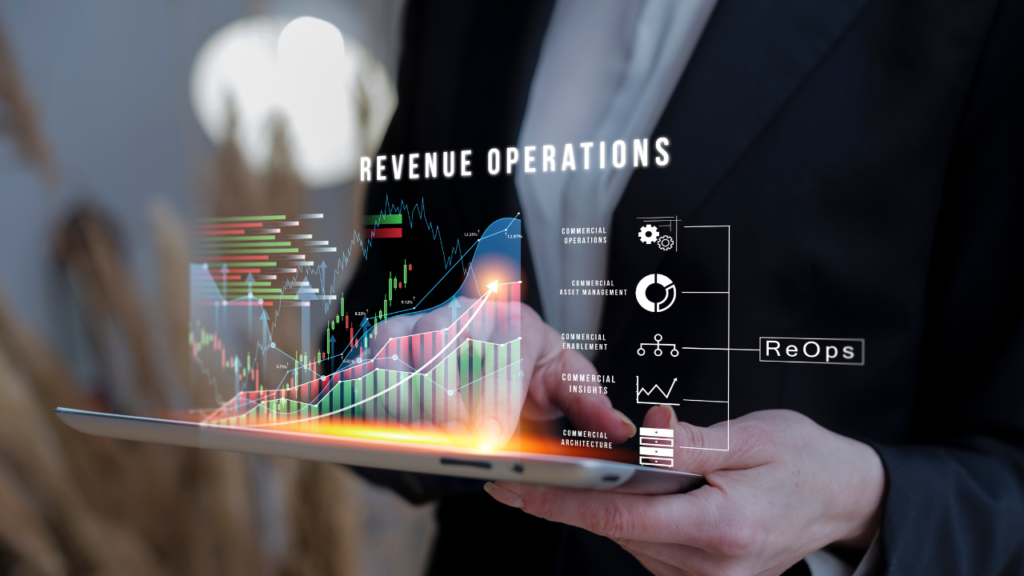
- Increased Efficiency: The notable increase in efficiency that results from integrating AI into accounting procedures is one of its main benefits. Artificial Intelligence is particularly good at automating tedious and repetitive tasks that take up a lot of an accountant’s time in the past. Accountants may refocus their attention on more strategic and value-added tasks by using AI to automate processes like data input, invoice processing, and transaction classification.
- Reduced Errors: In the accounting industry, AI algorithms’ precision is revolutionizing the field. In crucial areas like data entry and computations, where human mistake is most likely to occur, these algorithms are made to do jobs with extraordinary precision. As a consequence, there are fewer errors and disparities in financial data, which strengthens the credibility of financial reporting.
- Improved Decision-Making: One of the most important aspects of using AI to improve decision-making processes is its capacity to deliver real-time data and insights. Executives in the business are able to make timely and well-informed decisions since they have access to real-time financial information. Businesses are now even more equipped to recognize patterns, seize opportunities, and take proactive measures to resolve possible issues thanks to the incorporation of predictive analytics.
- Enhanced Fraud Detection: Fraud detection is one area where AI’s analytical skills come in handy. AI accounting software is capable of spotting irregularities and suspicious activity that can point to fraud by continuously examining financial transactions and patterns. Preventing fraud by taking a proactive approach enhances the safety of financial information and protects companies from any financial risks.
- Cost Savings: Long-term cost reductions are substantial when AI accounting software is implemented. Automation lessens the need for human labor to complete repetitive and routine tasks. Consequently, companies are able to allocate their resources as efficiently as possible, putting human capital to use on projects that call for creative problem-solving, critical thinking, and strategic judgment. Lowering the amount of manual labor not only reduces expenses but also improves overall operational effectiveness.
Who Benefits from AI Accounting Software?
AI accounting software has several benefits for companies of all sizes and in a variety of sectors. This game-changing technology benefits everyone from freelancers and small businesses to multinational corporations and accountancy firms. The advantages for each segment are broken down as follows:
-
Small Businesses:
- Streamlined Processes: Efficiency is vital since small businesses frequently have limited resources. By automating repetitive processes like data entry and invoice processing, AI accounting software lowers the need for a lot of manual work and improves small business operations.
- Financial Insights: Making decisions requires having access to insightful financial information. Small firms may make well-informed decisions about investments, growth strategies, and budgeting with the help of AI-driven analytics and reporting, which promotes sustainable development.
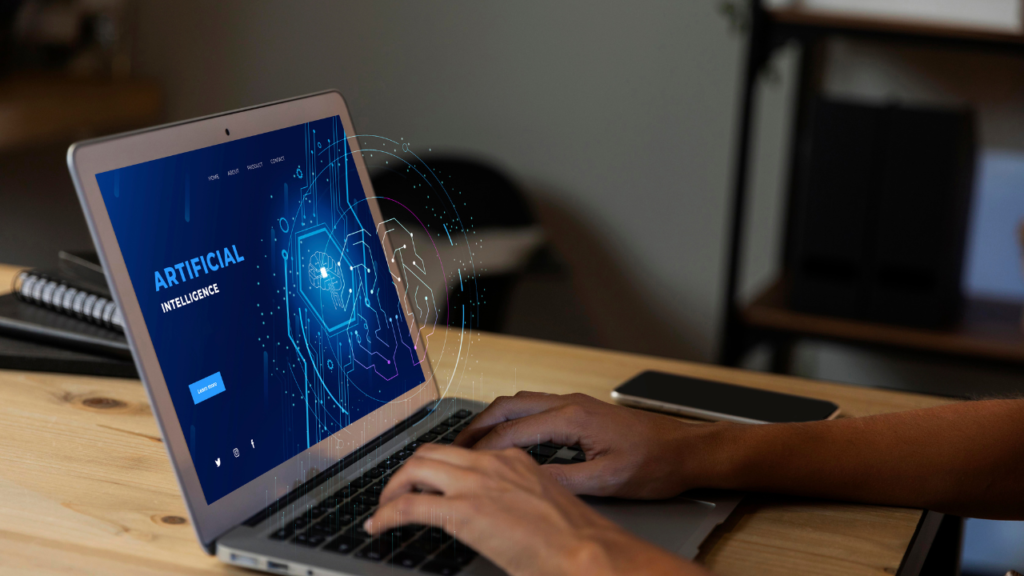
-
Freelancers and Solopreneurs:
- Efficient Financial Management: AI accounting software becomes a useful tool for independent contractors and solopreneurs who manage their finances and business duties. Without the need for a specialized accounting staff, it enables them to manage their money more effectively while guaranteeing correct bookkeeping and compliance.
- Focus on Growth: Freelancers and solopreneurs may focus on what they do best—developing and expanding their businesses—by automating time-consuming accounting processes. This allows them to maintain financial accuracy without sacrificing precision.
-
Accounting Firms:
- Enhanced Efficiency: By automating tedious activities, AI accounting software greatly increases the productivity of accounting organizations. This boosts overall productivity by enabling accounting professionals to concentrate on more intricate and strategic elements of financial management.
- Value-Added Services: Accounting firms can provide their clients with value-added services thanks to AI’s superior capabilities. These companies may offer a better degree of insight and consulting services, bolstering client connections, from real-time financial reporting to predictive analytics.
-
Large Enterprises:
- Automation of Complex Tasks: Big businesses frequently handle a lot of data and financial activities. AI accounting software is excellent at automating difficult processes like financial analysis and reconciliations, allowing big businesses to process enormous volumes of data quickly and accurately.
- Deeper Financial Insights: Artificial intelligence (AI) accounting software gives big businesses more insight into their financial performance through sophisticated analytics and forecasting capabilities. This makes it easier to manage risk, make more strategic decisions, and spot development prospects.
The Future of AI Accounting Software:
AI accounting software’s trajectory points to a bright future full of ongoing technical developments that will transform financial management. Looking ahead, we see the addition of increasingly complex features that will improve the capabilities of AI accounting software:
- Predictive Analytics: Predictive analytics is a new frontier for accounting software thanks to the development of AI technology. This cutting-edge function will enable the program to predict future patterns in addition to analyzing past financial data. Proactive insights can help businesses by enabling them to strategically optimize their finances and make well-informed decisions well in advance.
- Personalized Recommendations: AI accounting software of the future aims to provide a degree of personalization that beyond simple insights. Individual users’ unique requirements and preferences will be thoroughly examined by AI algorithms, which will then customize financial reports and recommendations appropriately. Businesses are certain to acquire insights that are specifically relevant to their particular situation thanks to this individualized approach, which promotes a more focused and successful financial management plan.
- Chatbots for Financial Assistance: Chatbots with AI capabilities are expected to be essential parts of AI accounting software, offering users instant financial support. These clever chatbots can assist with negotiating intricate financial problems in addition to providing simple financial queries with answers. As virtual assistants, they will improve the user experience by giving users quick access to information that is pertinent to their situation and context, allowing them to handle financial issues quickly and effectively.
- Blockchain Integration: Blockchain technology will probably be more deeply integrated into AI accounting in the future. Through the provision of an unchangeable ledger for accounting purposes, our partnership will improve the security and transparency of financial transactions. Blockchain technology and artificial intelligence working together might completely change how financial data is stored, validated, and protected.
- Enhanced Automation and Cognitive Learning: Accounting software will become more capable of automation and cognitive learning as AI continues to advance. In addition to automating repetitive operations, these systems will adapt and learn from user interactions and shifting financial conditions. The outcome is a more intelligent and intuitive accounting solution that changes to meet the ever-changing needs of organizations.
- Expanded Integration with Enterprise Systems: Upcoming AI accounting software is ready to combine with other company systems with ease, dismantling silos and promoting a business management strategy that is all-encompassing. A uniform picture of financial data across departments will be made possible by this integration, improving teamwork and enabling thorough decision-making.
- Greater Focus on Ethical AI: There will be more focus on ethical AI practices as AI becomes more and more important in financial decision-making. It is probable that forthcoming AI accounting software will integrate ethical considerations, guaranteeing impartial and equitable algorithms, clear and open decision-making procedures, and compliance with regulatory guidelines.
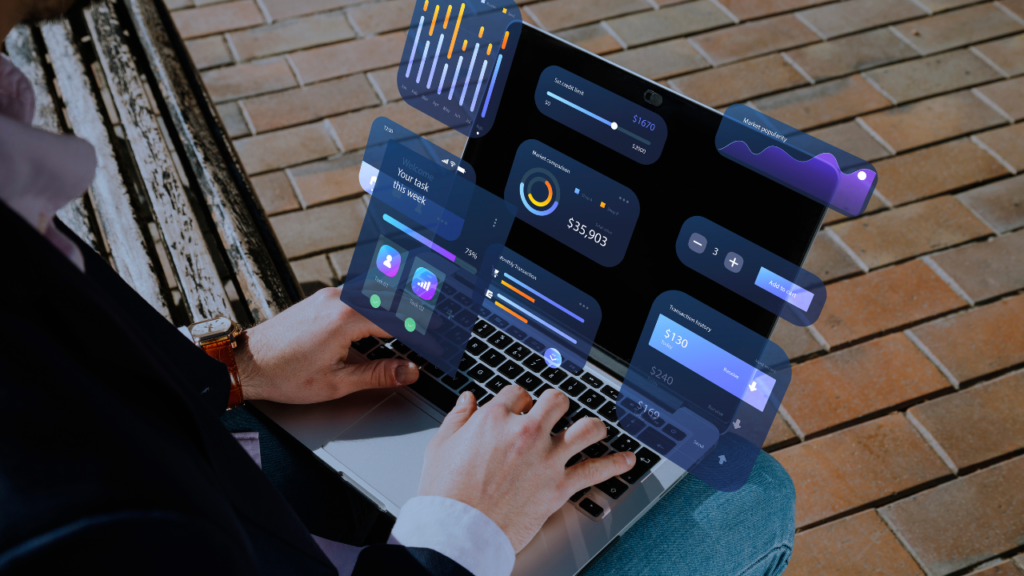
Conclusion:
Revolutionizing finance, AI-powered accounting software is reshaping how businesses handle their financial tasks. A game-changer for those seeking a competitive edge, it brings automation, enhanced accuracy, and real-time insights. As technology evolves, the synergy between AI and financial experts is set to redefine accounting, fostering innovation in the financial sector.
FAQs: AI Accounting Software
1. What is AI accounting software?
Artificial intelligence and machine learning are used by AI accounting software to automate operations, offer insights, and expedite financial procedures. Data input, processing invoices, bank reconciliation, tracking expenses, and even predictive analytics are included in this.
2. What are the benefits of using AI accounting software?
- Improved effectiveness and productivity: Accounting professionals may spend more time on strategic work and analysis when repetitive procedures are automated.
- Improved accuracy and fewer errors: Because AI systems are able to adapt and learn, there is a lower possibility of human error while entering data and performing other manual operations.
- Cost savings: By automating procedures and reducing errors, AI software may assist businesses in reducing the expenses related to accounting.
- Timely perceptions and improved judgment: Artificial intelligence (AI) helps accountants by offering insightful data visualizations and analytics that help them make better financial decisions.
- Artificial intelligence (AI) recognizes suspicious trends and anomalies to improve security and avoid fraud.
3. What are the potential drawbacks of AI accounting software?
- Initial outlay of funds: AI accounting software can be pricey, particularly for small enterprises.
- Employment displacement: Automation has the potential to cause a decline in employment within the accounting sector, but it can also open up new avenues for advancement.
- Complexity and learning curve: For accountants, utilizing and implementing AI software can be challenging, necessitating training and adjustment.
- Moral implications: Because biased AI algorithms might provide unjust results, it’s critical to select morally sound and open AI solutions.
4. What are the 10 best AI accounting software options?
- Xero
- Sage Intacct
- Pilot.ai
- Dext Prepare
- Float
- Fathom
- BlackLine
- Zoho Books
- AccountEdge Pro
- QuickBooks Online Advanced
5. How can I choose the right AI accounting software for my business?
- Think on your requirements and financial constraints: Decide which characteristics are most important to you, then weigh the features and costs of several possibilities.
- Examine reviews and feature comparisons: Pay attention to customer evaluations of the program and carefully weigh the features that various suppliers are offering.
- Request a trial or demo: To help you evaluate the program before committing, the majority of AI accounting software providers provide free samples or demonstrations.
- Speak with a software specialist or an accountant: To make sure you get the software that best suits your technical requirements and commercial goals, get expert help.
6. What is the future of AI in accounting?
The accounting industry stands on the brink of a revolution with AI set to automate intricate tasks, offer profound insights, and facilitate predictive financial modeling. Accountants must continually adapt and enhance their skills to effectively harness AI’s potential and maximize its benefits.
